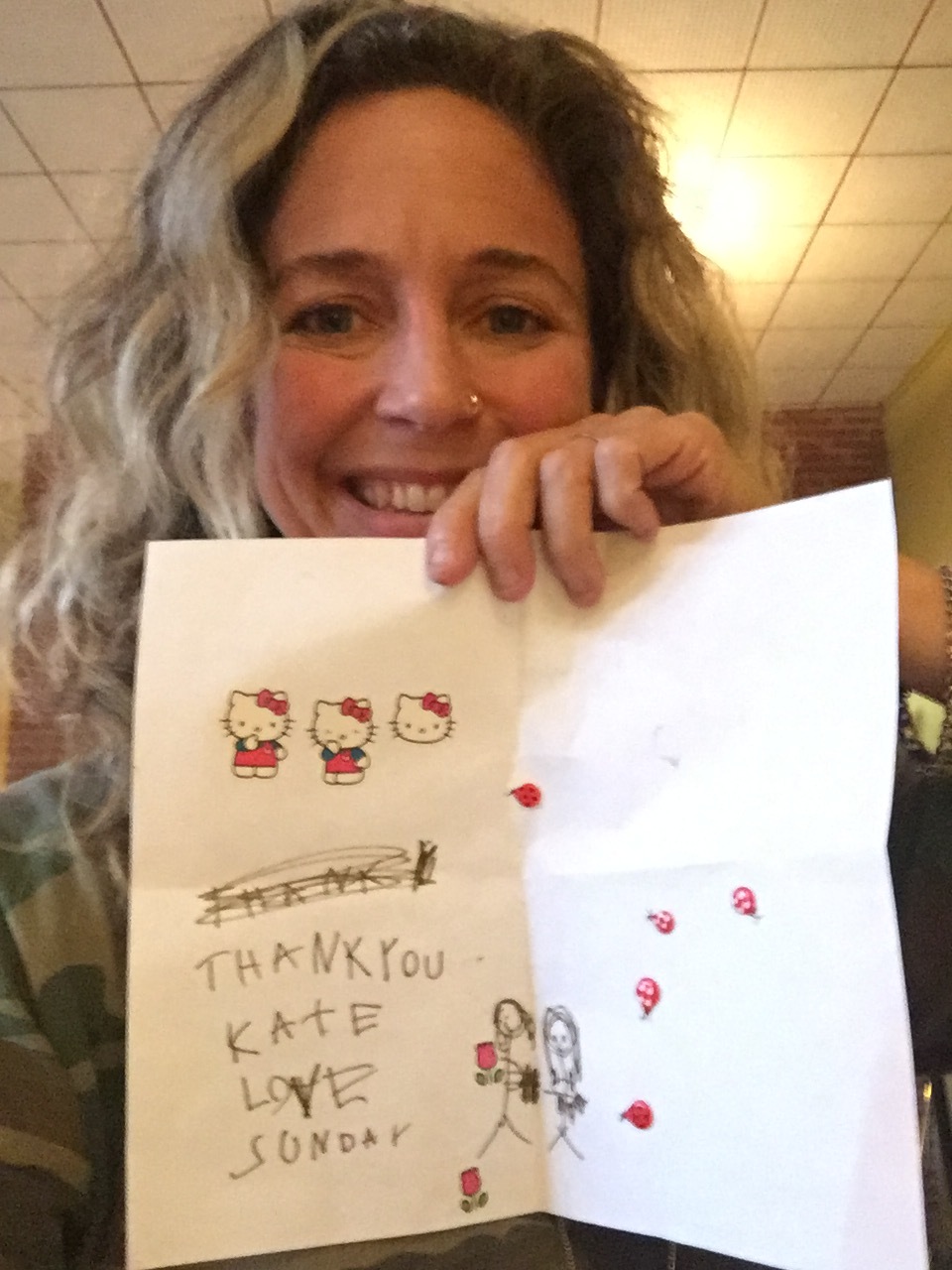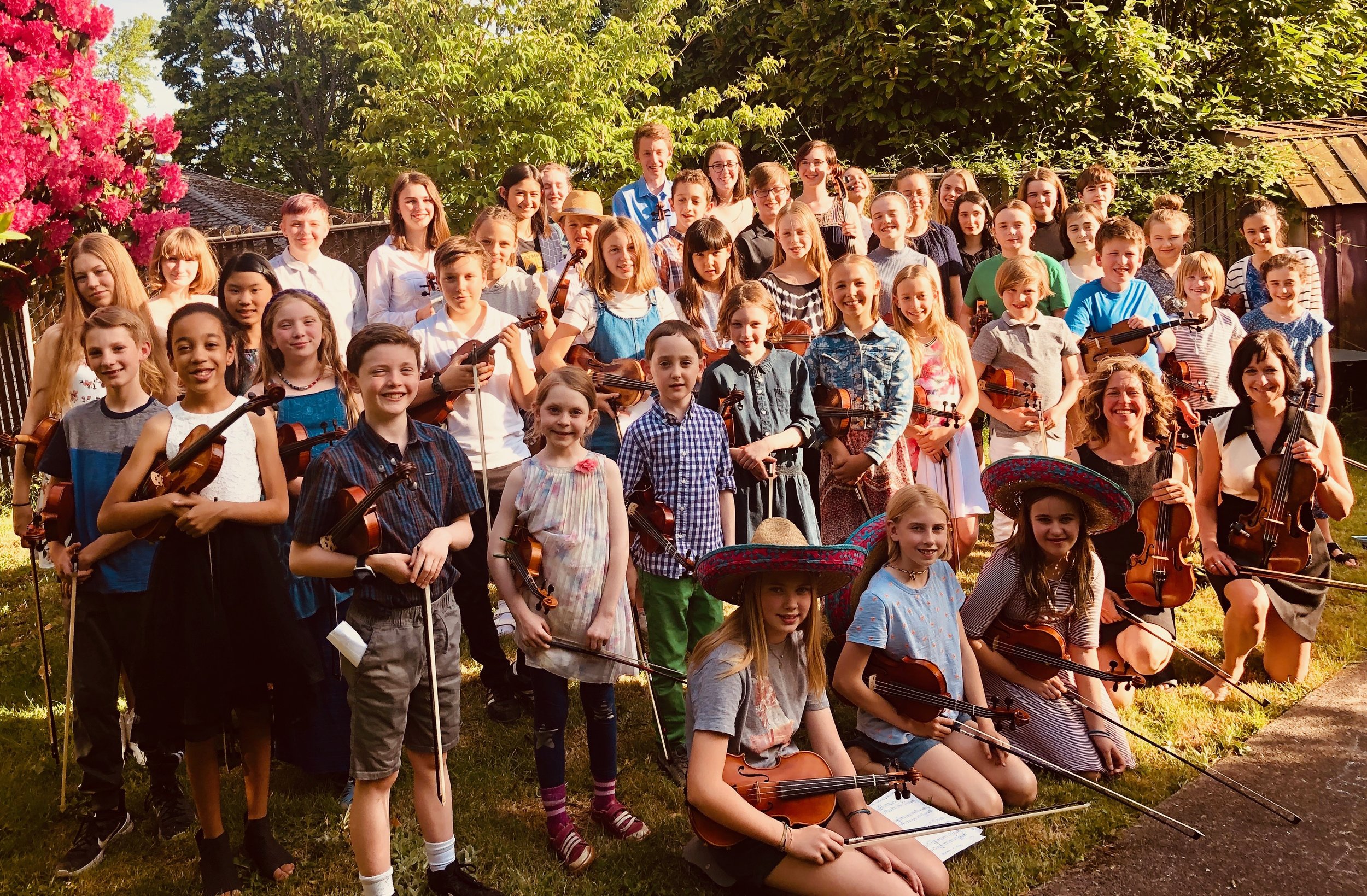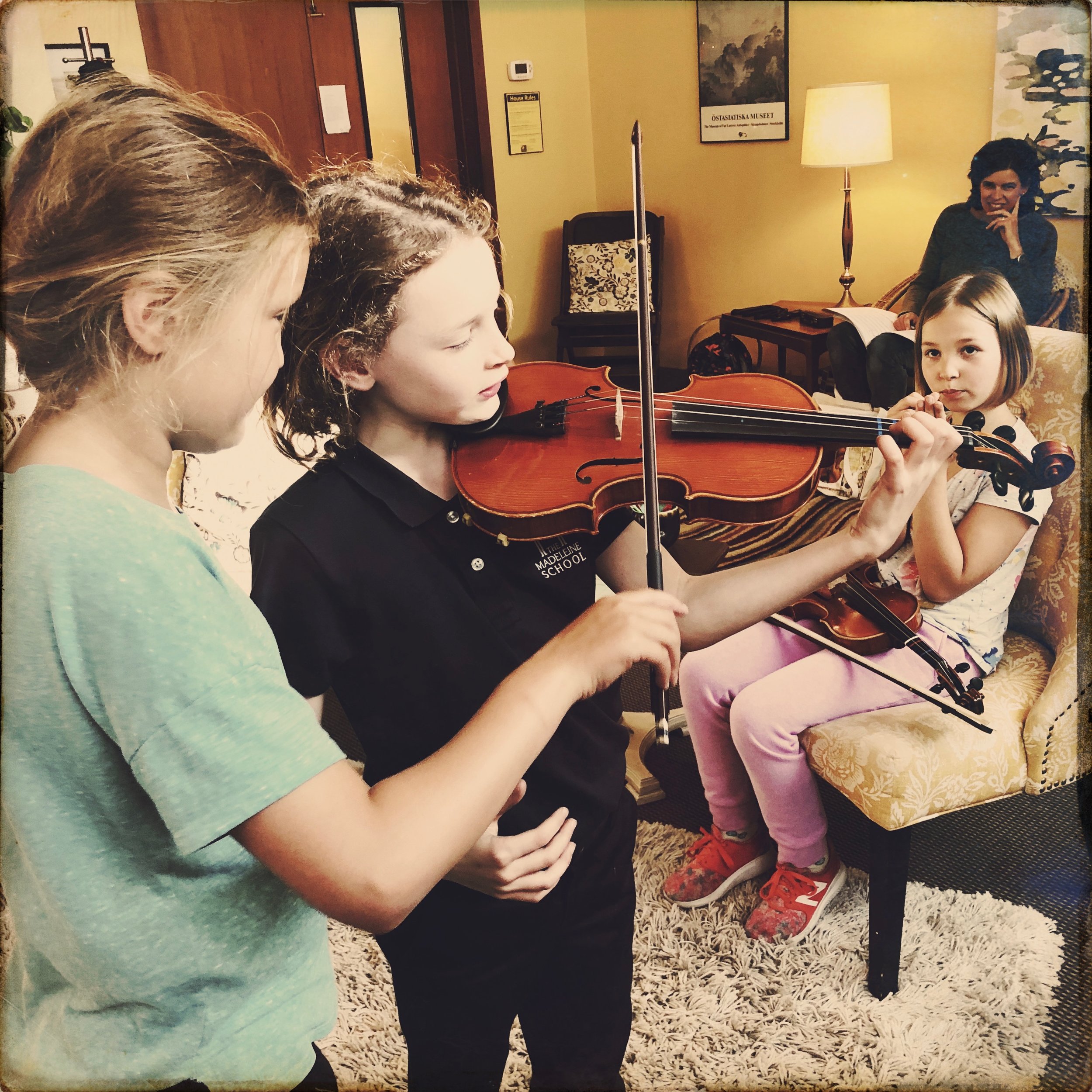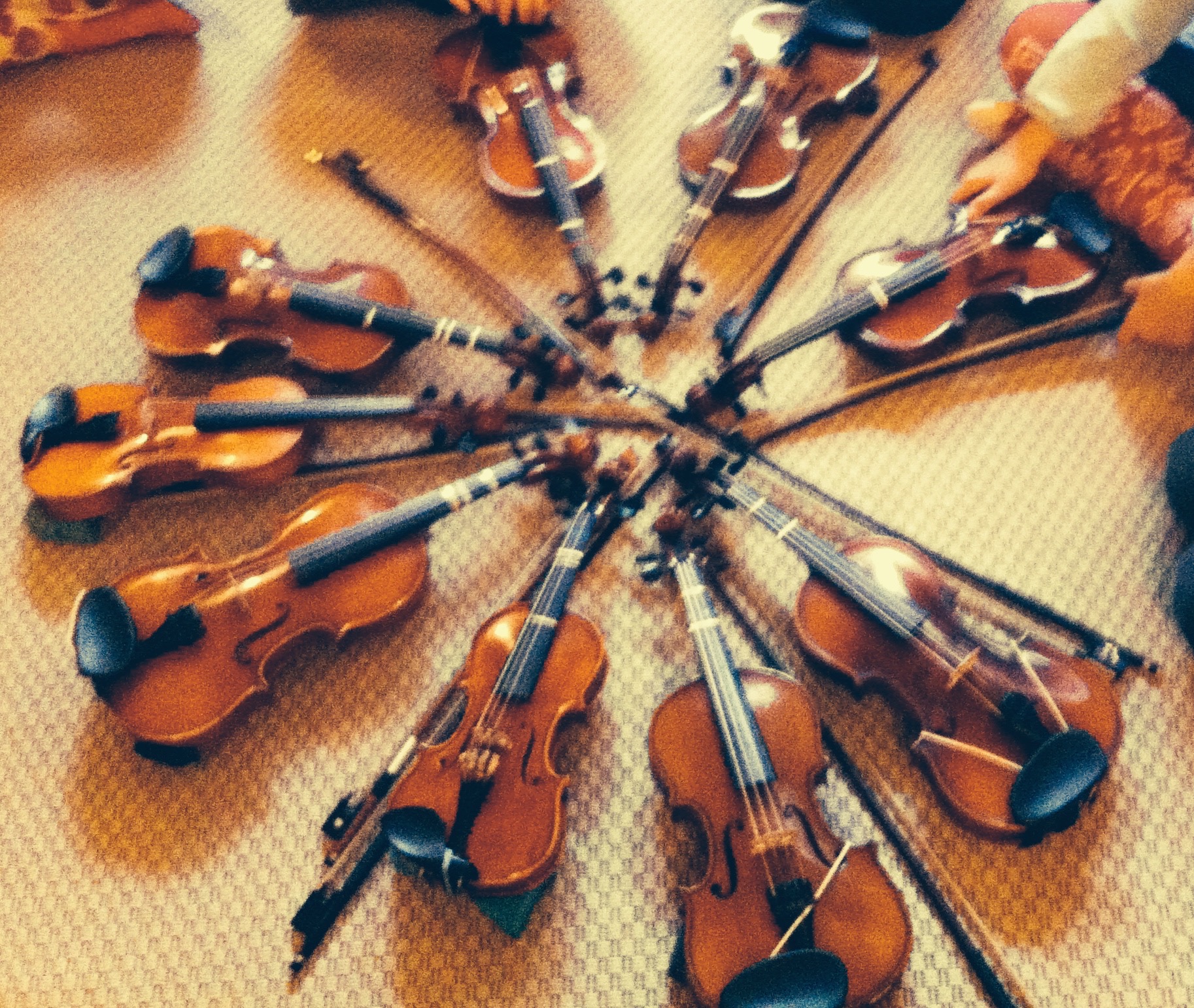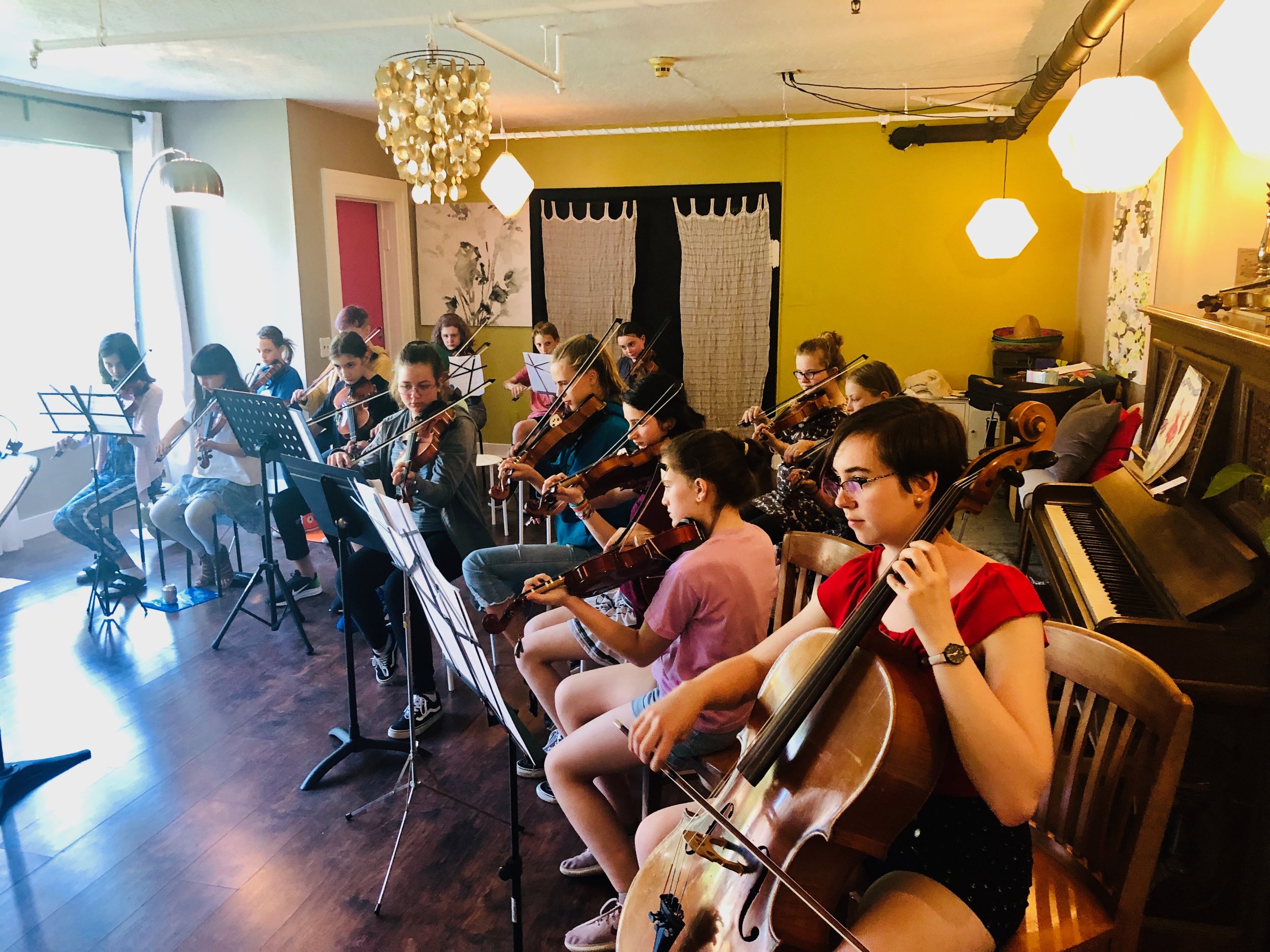private lessons & Group classes
Until further notice, msa offers all new and existing students private lessons online.
we will offer in-person group classes with social distancing requirements intact as soon as it’s safe.
We believe that everyone and anyone can learn to play an instrument. This is also the fundamental principle of the Suzuki Method. We endeavor to make learning all styles of music fun, easy and accessible. It is also our job to teach beautiful tone, technique and good practice habits. In the end, we wish to teach artistry. We’re excited to start you or your child on a whole new adventure. As we lovingly say, “Your lives will never be the same!”
All private lesson students are considered members of the Academy and group class is free and required. We are all part of a community and welcome you to join us. The first step is to schedule a meet-n-greet.
PRIVATE LESSONS
All parents of child beginners are asked to take our “Parent Education Course”. The course is essentially two 45-minute lessons for you, the parent! In this short course, you are taken through key elements of the Suzuki Method which includes setting realistic expectations, teaching you the steps for the violin and bow hold and relevant advice/tips regarding childhood development and learning a new instrument. Parent Education EMPOWERS the parent to feel helpful, involved and enthusiastic about the learning. Of course, this trickles down to the child in the most natural and direct way… it’s a win-win!
Private lessons are held at Mosaic String Academy. For beginners/children under 11yrs old, I require parents to commit to attend all lessons, take notes and put your best efforts towards daily practice, making sure the child does exactly as the teacher instructed. The parent need not be a musician – as parents are also taught step-by-step in how to help the child at home. During practice the parent creates a positive learning environment by giving praise for each effort. The length of practice time can vary depending on the child’s attention span, but will gradually increase as the student advances through the repertoire. Just as language learning happens slowly at first so does the ability to learn an instrument. Each piece has a skill set that is mastered before moving on to the next. We take small steps! Once mastered it is not forgotten but added to a “vocabulary” of pieces that are revisited to develop new techniques. Remember it is not the quantity of practice each day, but the quality. Even one-minute of practice counts!
Group Classes
Students enrolled in private lessons are required to sign up for Group Classes. For the social learning aspects explained below as well as to give our best performance possible, attendance at Group Class is mandatory.
MSA differs from most Suzuki studios in how we implement group learning. We have a unique approach called “Group Class Week.” First of all, there are no private lessons during Group Class Week. Instead, students come to the class(es) of their choice and appropriate to their ability level. (your teacher can assist in choosing if needed) Class choices include fiddle, mariachi, cinema, pop music, chamber music, songwriting, among others. Group class allows students to explore music from all around the world.
Group playing is key to musical development. Small class sizes, similar ages and ability levels, as well as consistent classmates will help create the best possible environment for a successful group experience. Playing in groups encourages our children to continue playing music – quite possibly the most important thing of all. I value this experience and opportunity for learning as much as private lessons.
In groups, people learn to follow a leader and be a leader. We learn to listen to others while playing. Chances to share music, play games and socialize keeps music from being something your child always does alone! During group class students enjoy playing together and learn from one another.
At our Group Class concerts, beginning students are motivated when hearing the advanced students and in turn the advanced students are reminded of how far they have progressed. There is always a spirit of cooperation amongst the students and parents.

